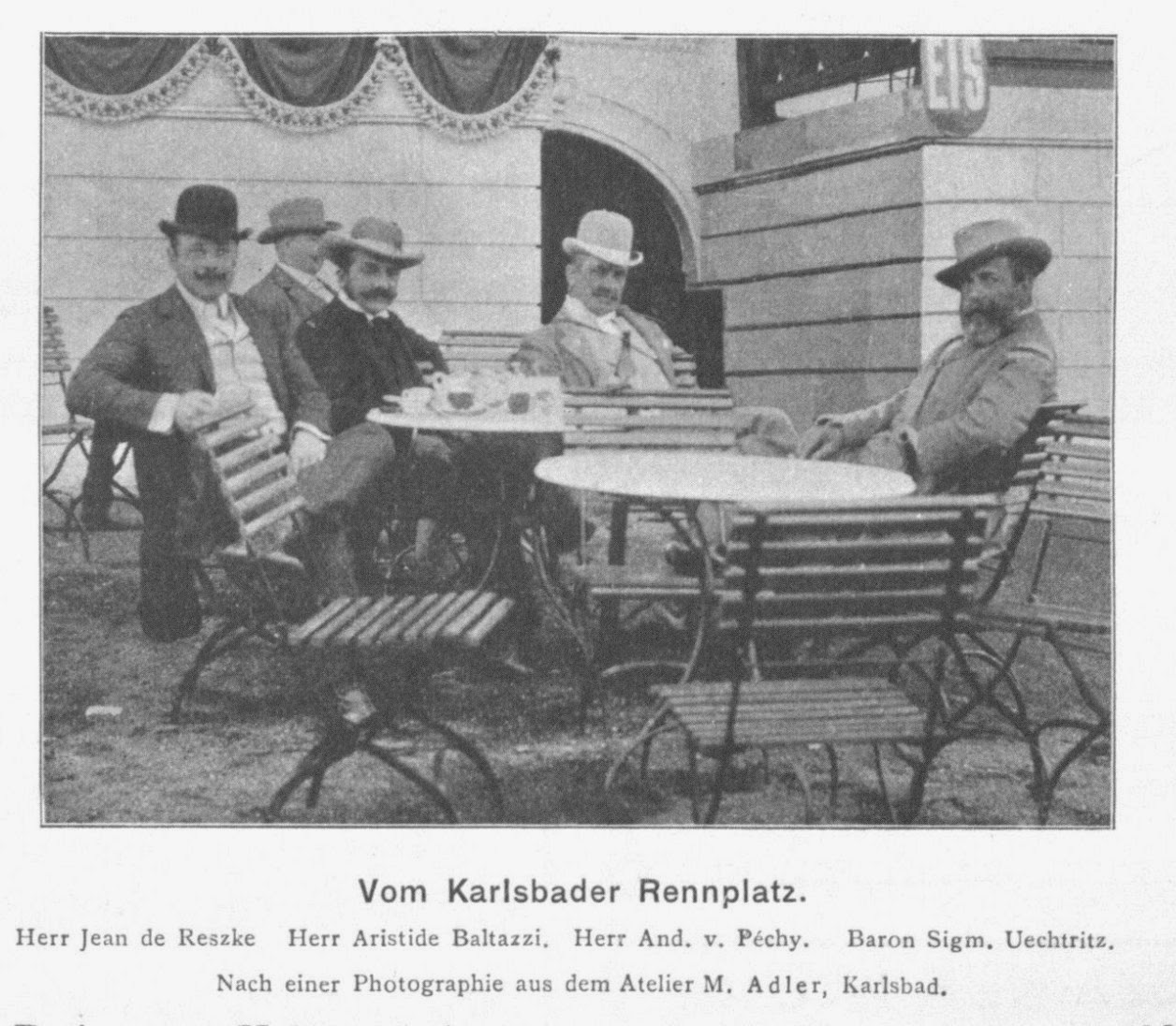Este joven será mi sucesor artístico.
THE OPERATIC AGE OF JEAN DE RESZKE FORTY YEARS OF OPERA 1874-1914 (1959) This book is not a biography of Jean de Reszke, but a plain, year-by-year account of the opera seasons in London from 1874 to 1914. Jean de Reszke was only one of the great singers who made these forty years a Golden age in the history of opera. In this fascinating account, the names of Emma Albani, Adelina Patti, Therese Tietjens, Zelie de Lussan, Edouard de Reszke, Emma Eames, Lillian Nordica, Nellie Melba, Enrico Caruso, Alessandro Bonci, Fernando de Lucia, Luisa Tetrazzini follow each other. The long account of titles and names can be sometimes a bit dry, but between lines emerge clearly the portrait of a way to make opera which, according to the author's experience, had already vanished when World War II started in 1939. The information about singers' technique is extremely valuable, but even more interesting are the paragraphs about acting (there is a detailed description of the standard King Mark's arrival scene in "Tristan und Isolde" act 2) and about the lighting of the stage. Today, Hurst's musical taste can puzzle the reader ("I dislike Madama Butterfly because I find it faintly common"), but is itself a valuable testimony of a cultural attitude which came directly from the Nineteenth Century.
Jean de Reszke ( Jan Mieczyslaw) (n. Varsovia; 14 de enero de 1850 - f. Niza; 3 de abril de 1925) fue un tenor polaco que llegó a ser el más famoso de su época.
Su padre fue un oficial y su madre una cantante aficionada y fue quien le dio instrucción musical. Cantó en coros y estudió leyes en la Universidad de Varsovia. Se perfeccionó en Milán y debutó como barítono, en Venecia en 1874 en La favorita, seguido por debuts en Londres y París, donde luego, como tenor, sería estrella absoluta. Se reeducó como tenor y debutó en Madrid en 1879 como Roberto el Diablo. En 1891 visitó Estados Unidos, y entre 1893 a 1899 fue la estrella del antiguo Metropolitan Opera en Nueva York. Sus roles más famosos fueron Le Cid, que le compuso Massenet, y Werther, Radames en Aida, Faust, Romeo y Julieta, Lancelot en Elaine, Lohengrin, Die Meistersinger von Nürnberg, Siegfried y Tristan und Isolde. En 1904, se retiró enfermo y el joven Enrico Caruso lo heredó. Entonces, De Reszke se convirtió en un famoso maestro de canto en París y Niza y entre sus alumnos se contaron Bidu Sayão, Louise Edvina, Claire Croiza, Vladimir Rosing, Maggie Teyte y Leo Slezak. Su hermano más joven Edouard de Reszke, (Varsovia, 1853) fue un famoso bajo así como su hermana Josephine, también cantante de ópera.



.jpg)




































No hay comentarios:
Publicar un comentario